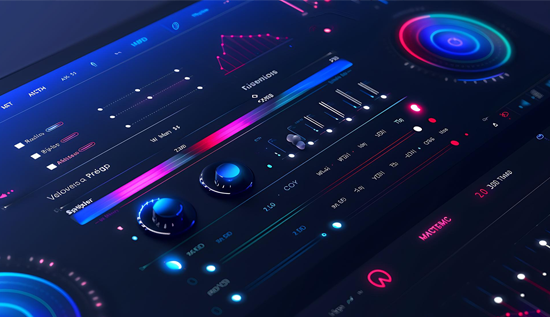Benefits of Low-Code and No-Code Development Platforms

Discover the transformative benefits of low-code and no-code platforms for rapid, cost-effective, and scalable application development.
Thanks to benefit of low-code and no-code development platforms, the realm of software development is changing. These systems enable companies to create apps fast and effectively, therefore removing the requirement for in-depth understanding of coding. Knowing the benefits of low-code and no-code platforms becomes essential as companies look for ways to adjust faster to technology needs.
In this article, we will delve into the low-code platform benefits and the no-code platform advantages, investigating how they meet various demands, from streamlining deployment to encouraging creativity using visual development tools. Let’s explore the transformative power of these platforms.
What Are Low-Code and No-Code Development Platforms?

Low-code and no-code development platforms refer to systems of software that let non-developers or developers construct apps with low or no coding needed. These platforms use visual development tools, such as drag-and-drop interfaces, to simplify the development process.
While low-code platforms target users with some technical knowledge, no-code platforms cater primarily to non-technical users or citizen developers.
Key Features of Low-Code and No-Code Platforms:
1. Visual development tools: Allow users to create app workflows easily without coding expertise.
2. Drag-and-drop interfaces: Simplify the process of designing app components and layouts.
3. Integration capabilities of no-code platforms: Enable seamless connection with third-party applications and services.
4. Customization in low-code development: Provides flexibility to fine-tune apps for specific business needs.
These capabilities enable companies to create faster and more creative solutions by lowering dependence on conventional software development technique.
Low-Code Platform Benefits
1. Accelerated Development Cycles: One of the most significant low-code platform benefits is the ability to speed up development cycles. With pre-built templates, drag-and-drop interfaces, Reusable components let developers concentrate on functional capability instead of beginning from scratch. Reduced development time and faster solution delivery follow from this.
2. Enhanced Collaboration: Low-code system help technical and non-technical teams close their distance. These systems improve communication and cooperation by letting corporate users help to create apps. Known as citizen development, this trend guarantees that apps closely complement corporate goals.
3. Cost-Effective Solutions: Standard app development calls for large expenditures in maintaining huge codebases and recruiting talented developers. By automating much of the development process, low-code platforms cut these expenses. The result is cost-effective app development that suits businesses of all sizes.
4. Seamless Integration Capabilities: The integration capabilities of no-code platforms by connecting apps with current technologies, such CRMs or ERPs, easily here. This guarantees that companies may simplify processes without compromising their present system.
5. Customization for Unique Needs: Low-code development gives lots of customizing choices even if it streamlines the process. Companies can modify tools to fit their own needs while preserving scalability and efficiency.
No-Code Platform Advantages
Here are some points of no-Code platform advantages:
1. Democratizing Application Development: The primary advantage of no-code platforms is their accessibility. Non-technical users or citizen developers, can produce completely working applications without one word of code written. Development's democratization helps workers everywhere to be more empowered.
2. Faster Time-to-Market: No-code platforms stress speed, much as low-code platforms. Pre-configured workflows and templates enable companies to start projects in record speed, therefore acquiring a competitive edge in their respective fields.
3. Simplified App Deployment: Applications are deployed using sometimes difficult procedures. Simplified app deployment with no-code platforms guarantees that even non-technical people can push apps live with minimum effort, hence lowering bottlenecks and improving productivity.
4. Lower Development Costs: No-code platforms advantages save a lot of money without requiring the hiring of professional developers or the expenditure in pricey technologies. Startups and small companies trying to innovate on a tight budget will find this perfect option.
How low-code and no-code Platforms Drive Innovation
Visual Development Tools: A Game-Changer
Visual development tools at the core of these systems help to ease difficult coding procedures. These instruments inspire invention and creativity by letting users see processes and results.
Supporting Rapid Application Development
The ability to create applications quickly is a cornerstone of digital transformation. With rapid application development, businesses can respond to market changes, customer need, and emerging trends with agility.
Encouraging Collaboration with Citizen Developers
Citizen development is a movement empowering non-technical staff members to realize their ideas, not just a fad. This cooperative approach guarantees that solutions are relevant and pragmatic, therefore inspiring creativity from inside.
Challenges and Limitations
Benefits of low-code and no-code systems have many advantages, but they also present certain difficulties. For really sophisticated applications, for example, conventional coding may still be necessary. Moreover, for bigger companies, no-code platforms' limited customizing options can impede scalability.
However, these platforms continue to evolve, addressing these challenges with new features and capabilities.
Conclusion
The benefits of low-code and no-code development platforms are undeniable. From rapid application development to cost-effective app development, these tools transform corporate approaches to software development.
Faster innovation, improved coordination and more efficiency follow from empowering both technical and non-technical people. The capacity of these platforms to revolutionize sectors will only increase as they keep developing.
Frequently Asked Questions
1. Benefits of low-code and no-code systems differ mostly in which regard?
While no-code platforms are intended for non-technical user without any coding experience, low-code platforms demand just little coding ability.
2. Benefits of Low-code and no-code systems could help big companies?
Indeed, big companies can utilize these tools for fast prototyping, cost control in development and encouragement of creativity.
3. Are systems for benefits of low-code and no-code securely built?
Although most systems provide strong security measures, it's still important to pick a reliable provider and use best standard.
4. How might these systems facilitate quick application development?
Pre-built templates, drag-and-drop interfaces, and reusable components all help to greatly cut development time.
5. These platforms help which businesses most?
Their demand for scalable and tailored solutions helps sectors including healthcare, banking, retail, and education to be much benefited.
6.Using no-code platforms, nontechnical users can create sophisticated programs?
While more sophisticated solutions may call for experienced developers, no-code systems shine at building simple to moderately complicated programs.
7. Using these platforms has what cost benefits?
These systems provide affordable app development fit for companies of all kinds by cutting dependency on developers and simplifying procedures.
More Articles
 02 Jan 2026
02 Jan 2026
Multimodal AI: Examples, Models & Real-World Benefits
Discover how Multimodal AI works, real-world applications, leading models, and future benefits shaping industries and digital intelligence.
 31 Dec 2025
31 Dec 2025
Generative Engine Optimization (GEO) & AI SEO Guide
Strategies for Generative Engine Optimization (GEO) and AI SEO to boost content visibility, rankings and engagement in AI-powered search results.
 26 Dec 2025
26 Dec 2025
Motion UI Trends 2026: Interactive Design & Examples
Explore the latest Motion UI trends for 2026, including UI animation techniques, interactive web design trends, and real-world motion UI examples that redefine modern digital experiences across web and mobile.
 26 Dec 2025
26 Dec 2025
Conversational UX: Design Tips & Examples for 2026
Conversational UX design strategies, real examples, chatbot and voice UX trends shaping smarter digital experiences in 2026.